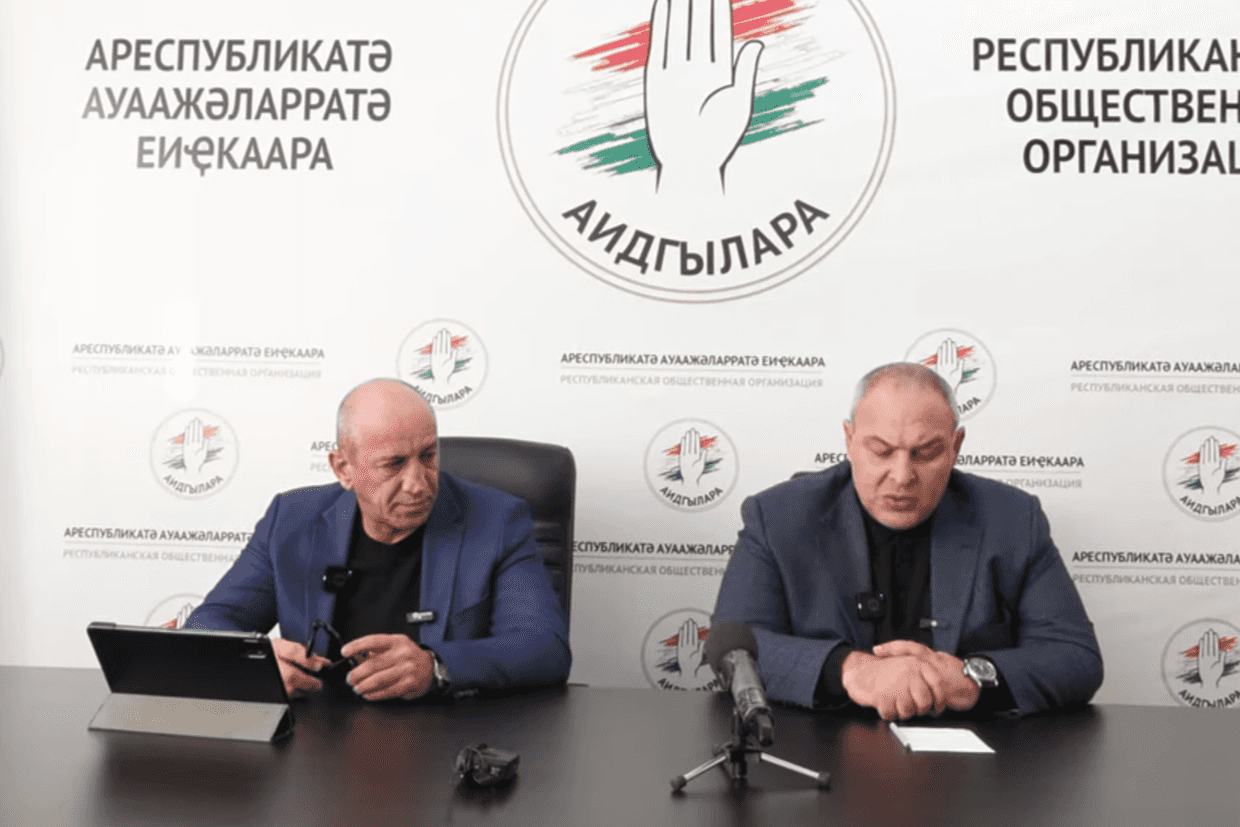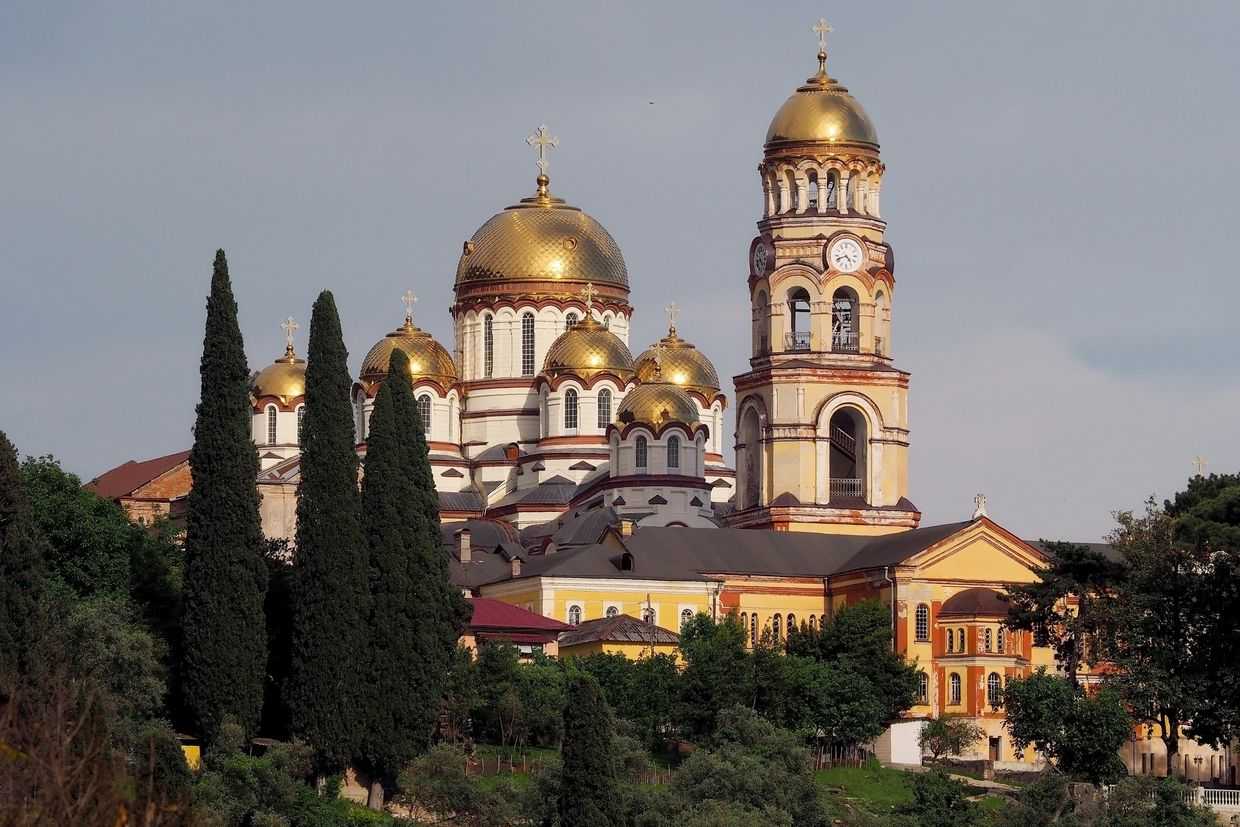
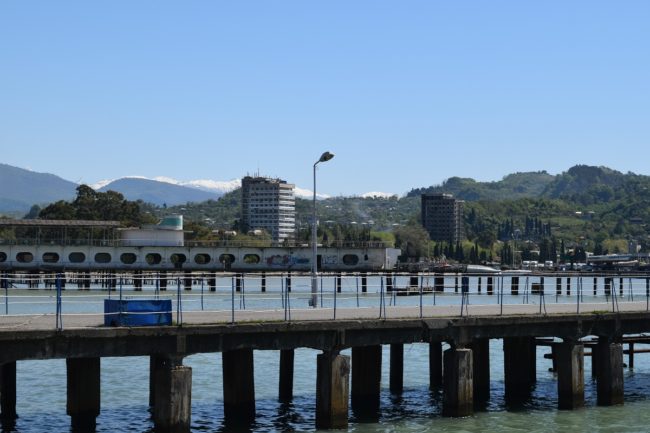
 Georgian authorities have unveiled a wide ranging plan ‘to encourage contacts, movement, and relations’ with people in Abkhazia and South Ossetia. The plan includes efforts to simplify trade, including from Abkhazia and South Ossetia to the EU, and encourage students from Abkhazia and South Ossetia to study in Georgian institutions and abroad. The initiative will also include changes to Georgia’s Law on Occupied Territories.
Georgian authorities have unveiled a wide ranging plan ‘to encourage contacts, movement, and relations’ with people in Abkhazia and South Ossetia. The plan includes efforts to simplify trade, including from Abkhazia and South Ossetia to the EU, and encourage students from Abkhazia and South Ossetia to study in Georgian institutions and abroad. The initiative will also include changes to Georgia’s Law on Occupied Territories.
Georgia’s Prime Minister Giorgi Kvirikashvili opened the monthly government meeting on Wednesday with what he called ‘a very important initiative that involves an unprecedented step on our country’s peaceful stable development’.
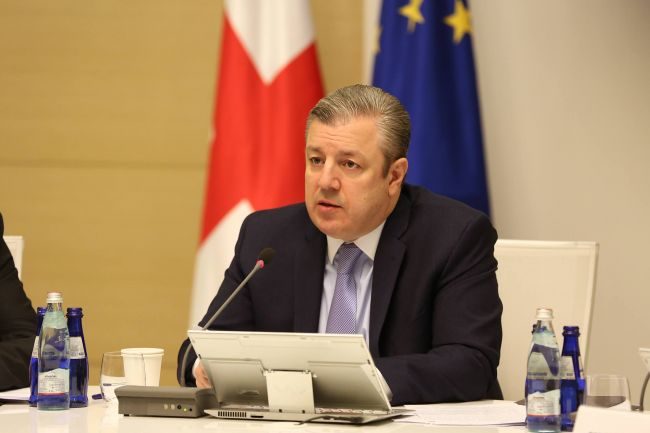
These ‘specific steps’, he said, were aimed at ‘improving the humanitarian and socio-economic situation’ of people in Abkhazia and South Ossetia.
Later that day, Georgia’s State Minister’s Office for Reconciliation and Civic Equality published the detailed plan, titled a Step to a Better Future.
According to the ministry, trade with Abkhazia and South Ossetia is currently ‘limited’ by physical barriers, restrictions on movement, taxes and charges, and restrictions on the volume of goods.
The initiative, they said, would allow products produced in Abkhazia and South Ossetia to access Georgia’s internal market using ‘status-neutral labelling’, and to be sold within the EU as part of Georgia’s free trade agreement.
On Monday, Russia announced a ‘temporary ban’ on agricultural imports from Abkhazia, reportedly causing dissatisfaction there. Trade from both Abkhazia and South Ossetia is highly dependent on Russia.
‘Expanding and simplifying trade’
Under the plan, residents of Abkhazia and South Ossetia will be able to transport locally produced goods to Georgian-controlled territories, with ‘status-neutral labelling’. ‘It may be sufficient to include only the name of the producer, the name of the city/settlement (e.g. Sukhumi, Gagra, etc.) and/or address (street, number) on the product’, without requiring a country or origin to be indicated, the document said.
‘The name of the product and other information on the label may also be placed in the Abkhazian language’, the document says.
In addition, a new state programme will be developed to fund ‘small business projects’ in Abkhazia and South Ossetia, according to the plan.
The export of goods produced in Abkhazia and South Ossetia to the EU will be allowed ‘with a Georgian certificate of origin’. Entrepreneurs from Abkhazia and South Ossetia will be able to indicate their legal address for export on this document in designated places in Georgia, for example the village of Rukhi, near Abkhazia.
The EU and Georgia signed an ‘Association Agreement’ in 2014, which entered into force July 2016 and included a preferential trade regime.
Individual numbers instead of status-neutral documents
The initiative introduced ‘depoliticised/status-neutral individual (personal) numbers’ for people in Abkhazia and South Ossetia. These, it said, would enable them to establish businesses, engage in trade, apply for government programmes, use banking services, register vehicles, as well as receive pre-school, primary and secondary, and higher education in Georgian institutions.
Registration, which will be unconnected with citizenship, will be possible using documents issued in Abkhazia and South Ossetia, and will be free of charge.
According to the plan, small traders, who often trade in agricultural products, will be unaffected and will not need to obtain personal numbers.
Special Economic Space
The plan also includes the creation of ‘Special Economic Spaces’ for people in Abkhazia and South Ossetia in the villages of Rukhi and Ergneti.
These will have a number of service-oriented public institutions, according to them, including offices of the Revenue Service, commercial banks, currency exchanges, and notary services.
In addition, agricultural and auto markets will be built in these areas, along with multi-functional training centre, a business incubator, and a free industrial zone.
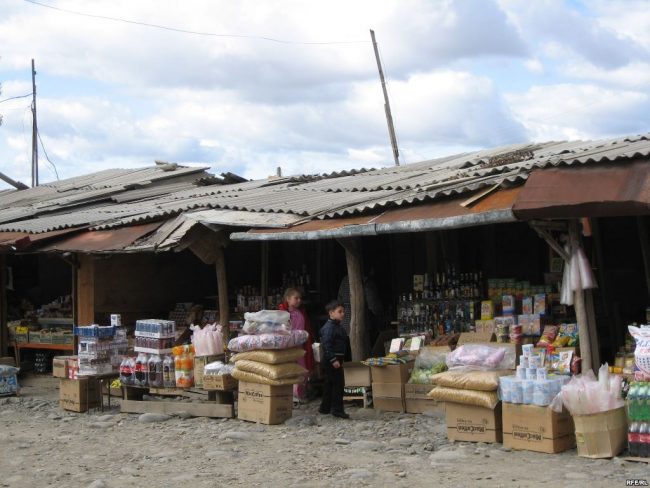
Georgian authorities shut down a popular market in Ergneti, near South Ossetia, in 2004, which has widely been seen as a contributing factor to break down relations between South Ossetians and Georgians. Georgia’s former Reconciliation Minister Paata Zakareishvili has actively advocated ‘to preserve the idea of Ergneti market’.
‘New educational opportunities’
Under the proposals, people from Abkhazia and South Ossetia would be eligible to attend Georgian educational institutions with their individual numbers alone, and would not need to obtain Georgian citizenship or the ‘status neutral’ documents currently available.
Students of Abkhazian and South Ossetian universities who wish to transfer to Georgian institutions would receive full funding without having to pass any exams.
Georgia will also simplify the process of recognising diplomas and other education documents issued in Abkhazia and South Ossetia.
The Georgian government also promised to cover tuition fees and to give priority to applications for subsidised accommodation from Abkhazian and South Ossetian students, and said they would build student dormitories in Tbilisi, Kutaisi, Batumi, Gori and Akhaltsikhe, for students from Abkhazia and South Ossetia.
‘A Step to a Better Future’
Ketevan Tsikhelashvili, Georgia’s State Minister for Reconciliation, issued a statement later on Wednesday saying that with the initiative, the Georgian authorities ‘seek to pave the way for constructive cooperation, dialogue with participation of various representatives of society and by that, to care about the wellbeing of the population even prior to the full-scale resolution of the conflict’.
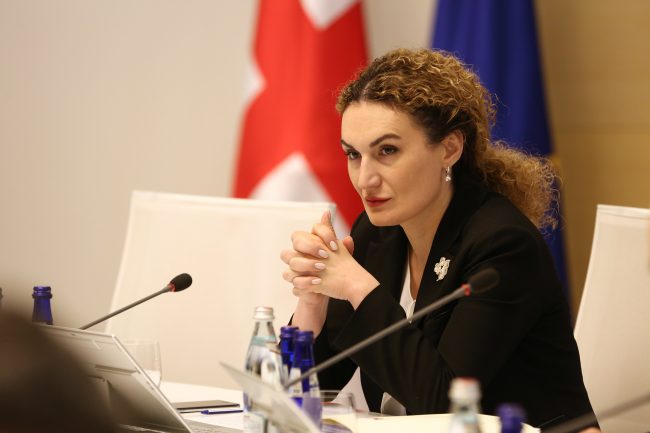
According to her, all the initiatives envision changes in a number of laws, including the Law on Occupied Territories, which Georgia adopted after the August 2008 War.
Laws on the Rules of Registration of Georgian Citizens and Foreign Citizens Residing in Georgia, Issuance of Personal Identification Card, on Civil Acts, on Entrepreneurship, on Grants, on Higher and General Educations, along with the Tax Code, are also to be amended by the Georgian parliament, she said.





